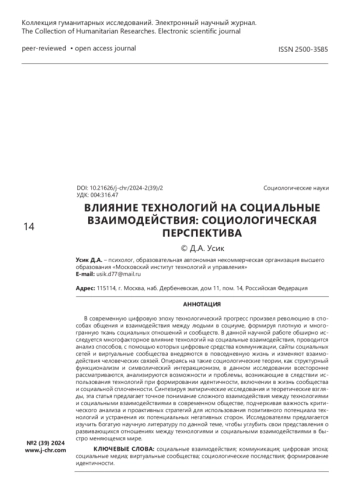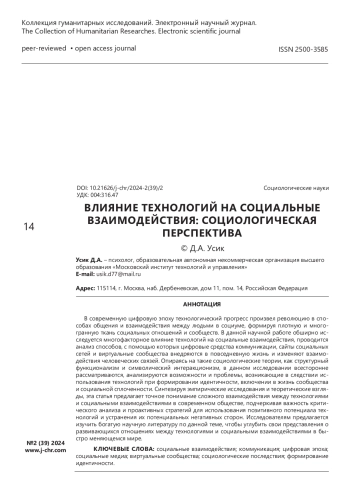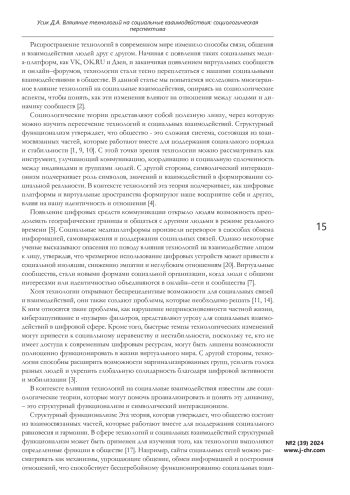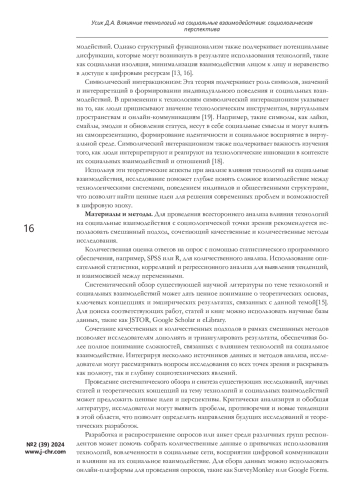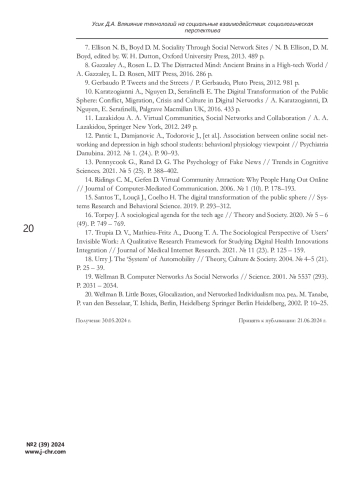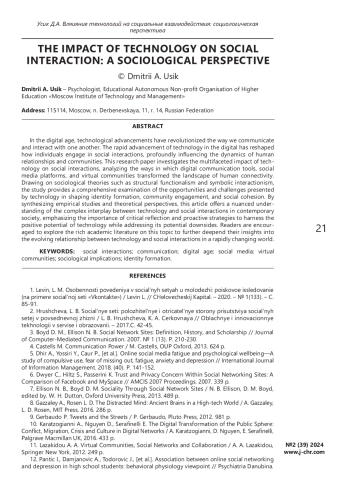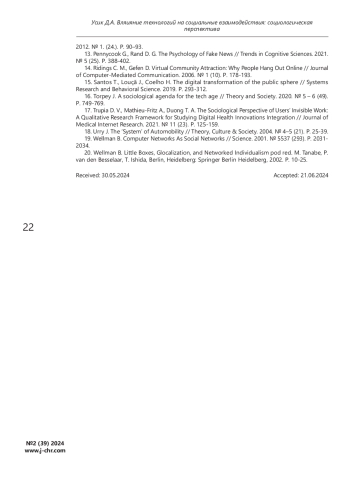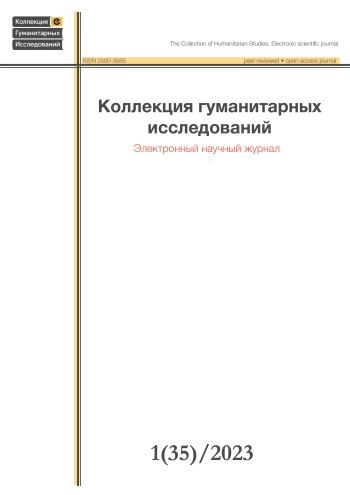1. Левин, Л. М. Особенности поведения в социальных сетях у молодежи: поисковое исследование (на примере социальной сети «Вконтакте») / Левин Л. // Человеческий Капитал. - 2020. - № 1(133). - C. 85 - 91.
2. Хрущева, Л. Б. Социальные сети: положительные и отрицательные стороны присутствия социальных сетей в повседневной жизни / Л. Б. Хрущева, К. А. Церковная // Облачные и инновационные технологии в сервисе и образовании. - 2017.C. 42-45.
3. Boyd D. M., Ellison N. B. Social Network Sites: Definition, History, and Scholarship // Journal of Computer-Mediated Communication. 2007. № 1 (13). P. 210-230.
4. Castells M. Communication Power / M. Castells, OUP Oxford, 2013. 624 p.
5. Dhir A., Yossiri Y., Caur P., [et al.]. Online social media fatigue and psychological wellbeing-A study of compulsive use, fear of missing out, fatigue, anxiety and depression // International Journal of Information Management. 2018. (40). P. 141-152.
6. Dwyer C., Hiltz S., Passerini K. Trust and Privacy Concern Within Social Networking Sites: A Comparison of Facebook and MySpace // AMCIS 2007 Proceedings. 2007. 339 p.
7. Ellison N. B., Boyd D. M. Sociality Through Social Network Sites / N. B. Ellison, D. M. Boyd, edited by. W. H. Dutton, Oxford University Press, 2013. 489 p.
8. Gazzaley A., Rosen L. D. The Distracted Mind: Ancient Brains in a High-tech World / A. Gazzaley, L. D. Rosen, MIT Press, 2016. 286 p.
9. Gerbaudo P. Tweets and the Streets / P. Gerbaudo, Pluto Press, 2012. 981 p.
10. Karatzogianni A., Nguyen D., Serafinelli E. The Digital Transformation of the Public Sphere: Conflict, Migration, Crisis and Culture in Digital Networks / A. Karatzogianni, D. Nguyen, E. Serafinelli, Palgrave Macmillan UK, 2016. 433 p.
11. Lazakidou A. A. Virtual Communities, Social Networks and Collaboration / A. A. Lazakidou, Springer New York, 2012. 249 p.
12. Pantic I., Damjanovic A., Todorovic J., [et al.]. Association between online social networking and depression in high school students: behavioral physiology viewpoint // Psychiatria Danubina. 2012. № 1. (24.). P. 90-93.
13. Pennycook G., Rand D. G. The Psychology of Fake News // Trends in Cognitive Sciences. 2021. № 5 (25). P. 388-402.
14. Ridings C. M., Gefen D. Virtual Community Attraction: Why People Hang Out Online // Journal of Computer-Mediated Communication. 2006. № 1 (10). P. 178-193.
15. Santos T., Louçã J., Coelho H. The digital transformation of the public sphere // Systems Research and Behavioral Science. 2019. P. 293-312.
16. Torpey J. A sociological agenda for the tech age // Theory and Society. 2020. № 5 - 6 (49) P. 749 - 769.
17. Trupia D. V., Mathieu-Fritz A., Duong T. A. The Sociological Perspective of Users’ Invisible Work: A Qualitative Research Framework for Studying Digital Health Innovations Integration // Journal of Medical Internet Research. 2021. № 11 (23). P. 125 - 159.
18. Urry J. The ‘System’ of Automobility // Theory, Culture & Society. 2004. № 4-5 (21). P. 25 - 39.
19. Wellman B. Computer Networks As Social Networks // Science. 2001. № 5537 (293). P. 2031 - 2034.
20. Wellman B. Little Boxes, Glocalization, and Networked Individualism под ред. M. Tanabe, P. van den Besselaar, T. Ishida, Berlin, Heidelberg: Springer Berlin Heidelberg, 2002. P. 10-25.
